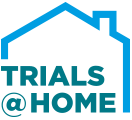In a conventional clinical trial, patients have to make regular trips to the clinic for check-ups to monitor their condition. Many patients are understandably put off by the distance to the clinic and how often they would be expected to make the trip, and many patients who initially join trials drop out for logistics reasons. Digital technologies and wearable devices mean it is now possible to assess patients remotely – while they are at home, or going about their daily lives. If used during clinical trials, they could dramatically reduce the number of times patients are expected to visit the clinic.
Trials@Home aims to explore the potential of digital technologies for use in ‘remote decentralised clinical trials’ (RDCTs). They will develop and test methods to streamline data collection as well as patient recruitment and retention. They will also discuss RDCTs with patients as well as regulators, payers, health technology assessment bodies (HTAs) and ethics bodies, to ensure that the project outcomes can be implemented. At the heart of the project is a study in which one group of patients will have the conventional clinical trial experience with regular clinic visits; a second group of patients will participate completely remotely; and a third group will follow a partly conventional / partly RDCT approach. The project will use the results of this study to identify which approaches are best for patient satisfaction, data quality and other parameters.
If successful, RDCTs could make it easier to recruit and retain larger numbers of patients, including people from groups that are often under-represented in trials. Furthermore, as data collection would be more or less continuous, the results would be more reliable and more representative of the real world.

